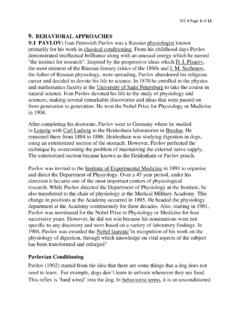Transcription of The Pillow-Book of Sei Shonagon Translated by Ivan Morris
1 The Pillow-Book of Sei Shonagon Translated by Ivan Morris Figure 1 Sei Shonagon Viewing the Snow, Utagawa Yoshitora, from the series Calligraphy and Pictures for the Fifty-three Stations of the T kaid , woodblock print, ink and color on paper, 1872 Introduction Sei Shonagon s Pillow Book (Makura no Soshi) is the private journal of a lady-in-waiting to the Empress of Japan written during the 990 s. Sei served her empress during the late Heian Period (a particularly vibrant time for Japanese arts and the beginning of Japan s feudal age) and was a contemporary of another lady-in-waiting, Murasaki Shikibu, author of the Tale of Genji (also in this anthology). Both Sei and Murasaki wrote about court life, but unlike Murasaki s epic romance, Sei s journal entries offer a more personal and informal glimpse into the life of a woman at court.
2 The selections in this anthology are meant to showcase the variety of Sei s musings and anecdotes. RLK Especially Delightful Is the First Day Especially delightful is the first day of the First Month, when the mists so often shroud the sky. Everyone pays great attention to his appearance and dresses with the utmost care. What a pleasure it is to see them all offer their congratulations to the Emperor and celebrate their own new year! This is the day when members of the nobility who live outside the Palace arrive in their magnificently decorated carriages to admire the blue horses. As the carriages are drawn over the ground-beam of the Central Gate, there is always a tremendous bump, and the heads of the women passengers are knocked together; the combs fall out of their hair, and may be smashed to pieces if the owners are not careful.
3 I enjoy the way everyone laughs when this happens. I remember one occasion when I visited the Palace to see the procession of blue horses. Several senior courtiers were standing outside the guard-house of the Left Division; they had borrowed bows from the escorts, and, with much laughter, were twanging them to make the blue horses prance. Looking through one of the gates of the Palace enclosure, I could dimly make out a garden fence, near which a number of ladies, several of them from the Office of Grounds, went to and fro. What lucky women, I thought, who could walk about the Nine-Fold Enclosure as though they had lived there all their lives! Just then the escorts passed close to my carriage, remarkably close, in fact, considering the vastness of the Palace grounds, and I could actually see the texture of their faces.
4 Some of them were not properly powdered; here and there their skin showed through unpleasantly like the dark patches of earth in a garden where the snow has begun to melt. When the horses in the procession reared wildly, I shrank into the back of my carriage and could no longer see what was happening. It is fascinating to see what happens during the period of appointments. However snowy and icy it may be, candidates of the Fourth and Fifth Ranks come to the Palace with their official requests. Those who are still young and merry seem full of confidence. For the candidates who are old and white-haired things do not go so smoothly. Such men have to apply for help from people with influence at Court; some of them even visit ladies-in-waiting in their quarters and go to great lengths in pointing out their own merits.
5 If young women happen to be present, they are greatly amused. As soon as the candidates have left, they mimic and deride them, something that the old men cannot possibly suspect as they scurry from one part of the Palace to another, begging everyone, "Please present my petition favourably to the Emperor" and "Pray inform Her Majesty about me." It is not so bad if they finally succeed, but it really is rather pathetic when all their efforts prove in vain. Things That Have Lost Their Power A woman who has taken off her false locks to comb the short hair that remains. A large tree that has been blown down in a gale and lies on its side with its roots in the air. The retreating figure of a sumo wrestler who has been defeated in a match. A man of no importance reprimanding an attendant.
6 A woman, who is angry with her husband about some trifling matter, leaves home and goes somewhere to hide. She is certain that he will rush about looking for her; but he does nothing of the kind and shows the most infuriating indifference. Since she cannot stay away forever, she swallows her pride and returns. Adorable Things The face of a child drawn on a melon. A baby of two or so is crawling, rapidly along the ground. With his sharp eyes he catches sight of a tiny object and, picking it up with his pretty little fingers, takes it to show to a grown-up person. A baby sparrow that comes hopping up when one imitates the squeak of a mouse; or again, when one has tied it with a thread round its leg and its parents bring insects or worms and pop them in its mouth: delightful! One picks up a pretty baby and holds him for a while in one's arms; while one is fondling him, he clings to one's neck and then falls asleep.
7 Pretty, white chicks who are still not fully fledged and look as if their clothes are too short for them; cheeping loudly, they follow one on their long legs, or walk close to the mother hen. When I Make Myself Imagine When I make myself imagine what it is like to be one of those women who live at home, faithfully serving their husbands, women who have not a single exciting prospect in life yet who believe that they are perfectly happy, I am filled with scorn. Often they are of quite good birth, yet have had no opportunity to find out what the world is like. I wish they could live for a while in our society, even if it should mean taking service as Attendants, so that they might come to know the delights it has to offer. I cannot bear men who believe that women serving in the Palace are bound to be frivolous and wicked.
8 Yet I suppose their prejudice is understandable. After all, women at Court do not spend their time hiding modestly behind fans and screens, but walk about, looking openly at people they chance to meet. Yes, they see everyone face to face, not only ladies-in-waiting like themselves, but even Their Imperial Majesties (whose august names I hardly dare mention), High Court Nobles, senior courtiers, and other gentlemen of high rank. In the presence of such exalted personages, the women in the Palace are all equally brazen, whether they be the maids of ladies-in-waiting, or the relations of Court ladies who have come to visit them, or housekeepers, or latrine-cleaners, or women who are of no more value than a roof-tile or a pebble. Small wonder that the young men regard them as immodest!
9 Yet are the gentlemen themselves any less so? They are not exactly bashful when it comes to looking at the great people in the Palace. No, everyone at Court is much the same in this respect. Women who have served in the Palace, but who later get married and live at home, are called Madam and receive the most respectful treatment. To be sure, people often consider that these women, who have displayed their faces to all and sundry during their years at Court, are lacking in feminine grace. How proud they must be, nevertheless, when they are styled Assistant Attendants, or summoned to the Palace for occasional duty, or ordered to serve as Imperial envoys during the Kamo Festival! Even those who stay at home lose nothing by having served at Court. In fact they make very good wives.
10 For example, if they are married to a provincial governor and their daughter is chosen to take part in the Gosechi dances, they do not have to disgrace themselves by acting like provincials and asking other people about procedure. They themselves are well versed in the formalities, which is just as it should be. Depressing Things A dog howling in the daytime. A lying-in room when the baby has died. A cold, empty brazier. An ox-driver who hates his oxen. A letter arrives from the provinces, but no gift accompanies it. It would be bad enough if such a letter reached one in the provinces from someone in the capital; but then at least it would have interesting news about goings-on in society, and that would be a consolation. One has written a letter, taking pains to make it as attractive as possible, and now one impatiently awaits the reply.
















